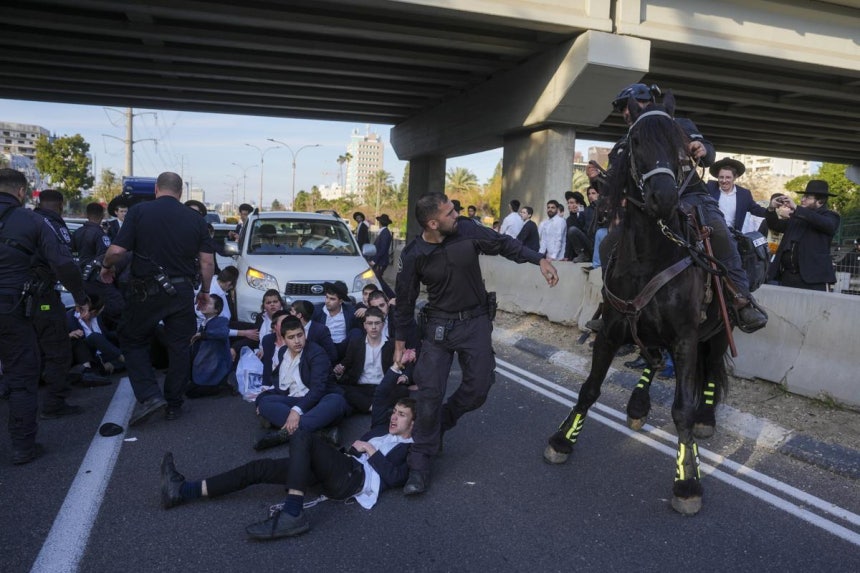Blame Placed on Hamas for Rejecting Ceasefire Proposal
ABC: “Action Taken After Coordination with the U.S.”
Crisis for 2 Million Relying on Aid Supplies
Egypt Criticizes “Using Starvation as a Weapon”,

Israeli police disperse ultra-Orthodox Jewish ‘Haredi’ protesters blocking roads in Bnei Brak opposing military drafts. Since its establishment in 1948, Israel exempted these groups from military service to preserve Jewish culture and tradition, but with the prolonged war against Hamas escalating, drafting efforts increased. In June last year, the Supreme Court also ruled the exemption for Haredi unjust. Bnei Brak=AP Newsis, Amid stalled ceasefire negotiations between Israel and the Palestinian militant group Hamas, Israel has decided to block humanitarian aid supplies to the Gaza Strip. As the Trump administration supports Israel’s move, discontent over U.S. mediation diplomacy in the Middle East is growing.
According to Israeli media, including the Times of Israel, the Israeli Prime Minister’s Office announced on the 2nd of the month that “Prime Minister Benjamin Netanyahu decided to block all goods and supplies from entering the Gaza Strip as of this morning.” Since the ceasefire of the 15-month-long Gaza war began on January 19th, 21,000 vehicle loads of aid have been delivered to Gaza. With their self-sufficiency destroyed by prolonged bombardment, the 2 million Palestinian residents in Gaza rely heavily on aid supplies. NPR reported that while Gaza residents could only eat once every 2 to 3 days during the war, after aid began to come in, they managed at least one meal per day.
The Israeli Prime Minister’s Office cited the reason for halting aid supplies, stating, “U.S. Middle East envoy Steve Witcoff proposed extending the ceasefire through the Islamic Ramadan and Jewish Passover to both sides, but Hamas rejected it.” They indicated that if Hamas continues to refuse negotiation, there would be consequences, hinting at the potential resumption of war.
ABC News reported that the decision to stop aid supplies was announced after coordination with the United States. Brian Hughes, White House National Security Council (NSC) spokesperson, also stated, “If Hamas is not interested in a negotiated ceasefire, the U.S. would support Israel’s decisions for the next steps.”
Arab nations have unanimously opposed Israel’s actions. Egypt, one of the mediators for a ceasefire, condemned the halt of aid supplies as a violation of international law. Egyptian Foreign Minister Badr Abdel-Ati stated, “Using international aid as a weapon of collective punishment or starvation is utterly unacceptable.” Egypt intends to convene an Arab League summit on the 4th to discuss the Gaza situation.
Previously, Israel and Hamas were negotiating a ceasefire involving the exchange of Israeli hostages and remains for the withdrawal of Israeli forces from Gaza. However, with hardliners in Israel pushing for renewed conflict to weaken Hamas, talks stalled, and the initial ceasefire deadline ended on the 1st.
In response, Envoy Witcoff proposed a mediation plan where during Ramadan and Passover, Hamas returns half of the hostages and remains, with a permanent ceasefire leading to the remainder’s exchange. Israel was willing to accept this proposal, but Hamas rejected it, insisting that the agenda includes the withdrawal of Israeli military from Gaza, as previously agreed. Hamas reportedly fears that the additional return of hostages could weaken their bargaining position. Ramadan is expected to last until the 29th (30th in some areas), and Passover ends next month on the 20th.

